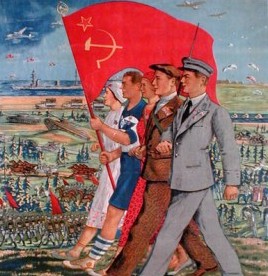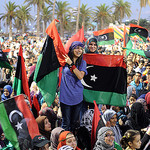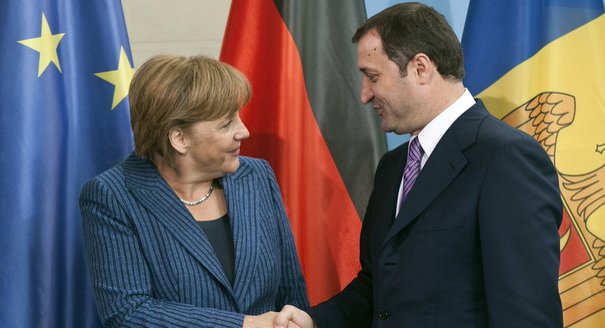
International Relations: It’s time to revise how we talk about revisionist powers
Historians and political scientists have traditionally divided countries into status quo and revisionist powers. The former tend to accept the existing international system as it is, while the latter reject the prevailing legitimacy of the international system and seek to alter it considerably or to overthrow it entirely. I would argue that there is a conceptual problem in ascribing the term revisionist to describe the respective foreign policy goals to international actors, such as Napoleonic France, modern Iran, and Fidel Castro’s Cuba.

The Bride and the Dowry: Israel, Jordan, and the Palestinians in the Aftermath of the June 1967 War
On Wednesday 24th October, Oxford’s Dr Avi Raz delivered a talk at the DPIR in order to launch his new book, “The Bride and the Dowry: Israel, Jordan, and the Palestinians in the Aftermath of the June 1967 War”. The book – an expansion of his doctoral thesis – is a well-researched account of events surrounding one of the most important periods in the history of the Middle East: one which saw Israel secure a resounding victory over the Arab armies in the six day war, therein gaining territory 3 times the size of its nation and, after 2000 years, returning a united Jerusalem to Jewish authority.

Who cares about Transnistria? Linkage and Leverage: External actors and conflicts in the post-Soviet space
The colour revolutions in Georgia (“Rose” 2003) and Ukraine (“Orange”, 2004) seemed to promise that countries on the North and East of the Black Sea would shake off their “post-Soviet” label and take a firm and unwavering road towards Europe and the US. Perhaps the states of Central Asia would choose a similar route. Russia would have to take a back seat. A resurgent Russia under Putin has destroyed much of this myth, not least because of Russia’s involvement in the de facto states which have arisen from conflicts: South Ossetia and Abkhazia (Georgia), Nagorno-Karabakh (Armenia/Azerbaijan) and Transnistria (Moldova). Russian influence after 200 years of empire runs deep, but local factors also have a bearing; the EU and US have not applied sufficient drive or resources to the region, or to the conflicts, to balance or check Russia.

The story of how a little girl from Swat became a rallying point against the Taliban
In January 2009, Pakistan’s Swat valley was fully under the control of a Taliban affiliate, Tehrik-e-Nifaz-e-Shariat-e-Muhammadi(TNSM), and its leader Sufi Muhammad had issued a decree banning female education in the area. Only a handful of schools there had escaped the Taliban’s destructive wrath. While fear gripped the entire valley, Malala Yousafzai, an eleven years old girl from Swat’s Mingora town, began telling the world her innocent tales of surviving the Taliban’s ban on education.

Winning the Peace: Libya’s transition is still perilous, but there is reason for hope
Libya’s outgoing Prime Minister, Adurrahim al-Keib, stated recently that “we are seeing the birth of a new Libya that is as beautiful as the waves of the sea.” Yet, given the enormous task of building a new democracy from scratch — and the equally immense economic, ethnic and political problems plaguing the new state — those waves belie turbulent currents.

International Conflicts: What is the difference between risk and uncertainty?
To answer this question, I’ll begin with a few basic statements. Risk is tangible; uncertainty is not. One can define risk, but one can barely delineate the outer layers of uncertainty. Risk can be rendered concrete; uncertainty cannot.

Moldova: At the Crossroads between Russia and the European Union
On August 22, 2012, German Chancellor Angela Merkel conducted an important one-day visit to Moldova to celebrate 20 years of German-Moldovan cooperation. Some of the key topics of discussion during her visit were a potential resolution of the Transnistrian conflict, triggered by the self-proclaimed independence of this Moldovan region in 1990 and suspended by the 1992 ceasefire, as well as Moldova’s integration into the European Union (EU). Indicative of the importance of this visit was the fact that the German Chancellor took part in the visit personally, rather than sending a lower ranking representative to address her Moldovan counterpart. Most commentators who have analyzed Merkel’s visit have played down its importance, arguing it merely represents a strengthened effort to resolve …
Inside the Libyan Street
Jason Pack and Andrea Khalil in Monday’s Wall St. Journal. Written in Benghazi, Libya– September 11th now signifies a national tragedy not only for the United States but also for Libya. The killing of Ambassador Christopher Stevens in Benghazi during last Tuesday’s attack on the U.S. mission has upset the delicate political transition from dictatorship to democracy that was unfolding here in Libya. It also has obscured parliament’s prudent selection last Wednesday evening of Mustafa Abushagour—a moderate Islamist and respected technocrat—as prime minister. Yet spontaneous street demonstrations throughout the week denouncing the attack and seeking to pressure the government to act against its perpetrators suggest that Libyans are determined to build an inclusive society, free from fear. On Wednesday night …









